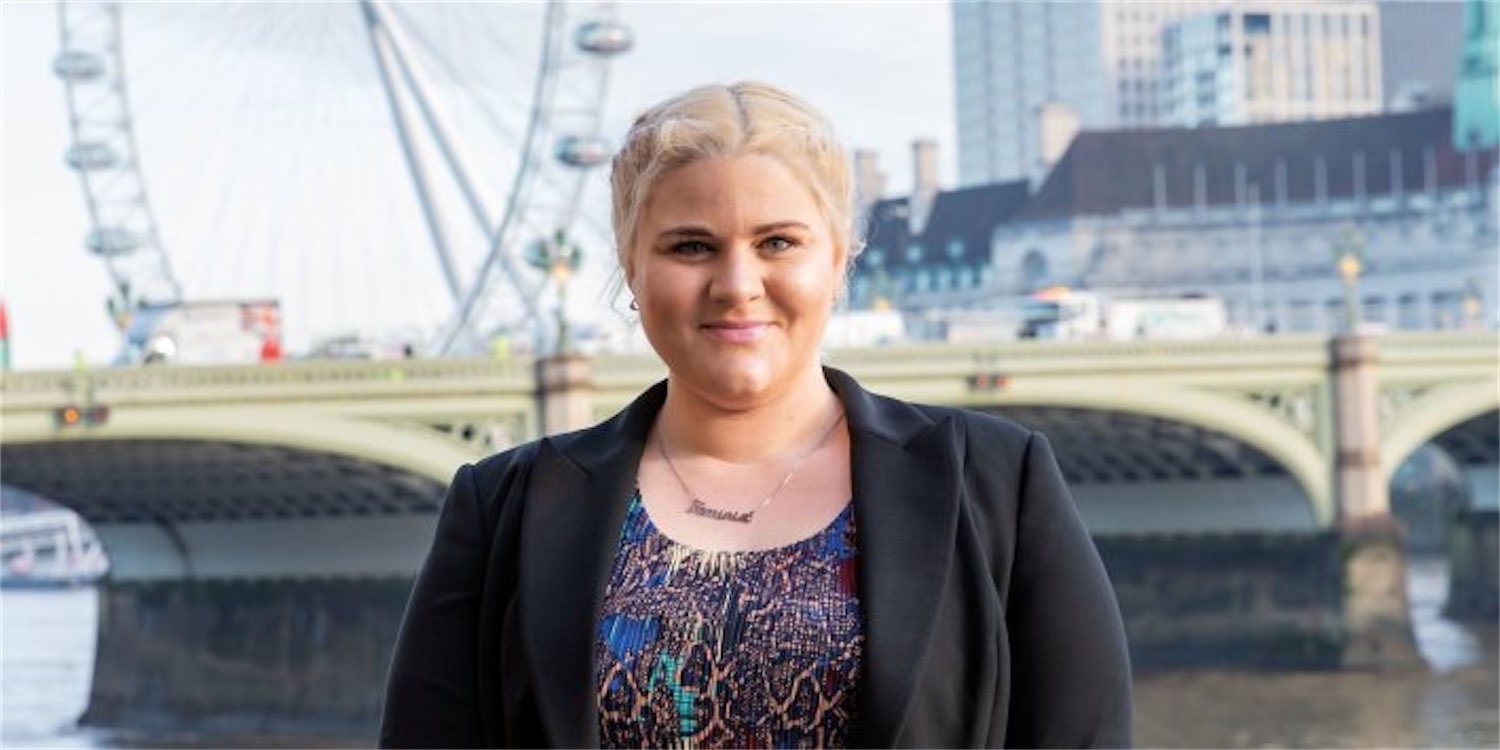Local Bank Closures Risk Excluding Vulnerable People From Financial Services, Says Labour Frontbencher
Hundreds of bank branches are being closed down across the UK (Alamy)
5 min read
A Labour shadow minister has said Britain cannot “just abandon cash” and must ensure people have access to in-person banking, as major banks are closing down scores of branches across the UK, including in her constituency in Wales.
Alex Davies-Jones, Shadow Minister for Tech, Gambling and Digital Economy and MP for Pontypridd in South Wales, said her constituents are “really” concerned after Barclays announced it will close its branch in the town of Pontypridd, following a “spate” of other bank branch closures in the area over the last 18 months.
While this is particularly problematic for small towns, Davies-Jones argued the issue extends across the UK, as closing local branches makes it difficult for vulnerable people such as the elderly, disabled and low-income groups to access free cash and customer support.
“We need to keep cash in society, we can’t just abandon cash,” she told PoliticsHome.
“These closures have left villages without any bank presence whatsoever.
“I think elderly people are more likely to be impacted, but I would say it's also the vulnerable and that crosses across all age categories, like people who are disabled or neurodivergent or who require help in facilitating cash access or financial services.
“It does impact everybody who is digitally excluded, particularly in a cost of living crisis.”
 Alex Davies-Jones has been MP for Pontypridd since 2019 (Photography: Louise Haywood-Schiefer)
Alex Davies-Jones has been MP for Pontypridd since 2019 (Photography: Louise Haywood-Schiefer)
Barclays will shut at least 146 of its bank branches throughout 2023 and 2024 – nearly a third of its entire UK network – while also reducing the opening hours of some remaining branches.
Meanwhile, HSBC is set to close 114 branches, NatWest is going to close 52, and Lloyds Bank will close 23.
According to a Which? survey of bank customers published in June, more than half (52 per cent) of bank customers with disabilities feel that branch closures have negatively affected their ability to access vital banking services. People with hearing impairments, for example, can struggle to navigate phone banking.
Many of the major banks justify the closures by claiming customers are choosing to use apps and other digital tools to access services instead, especially since the Covid-19 lockdowns prevented people from visiting branches in person.
In a leaflet explaining why it is closing the Pontypridd branch, Barclays said: “There are lots of ways to manage your money without even leaving your home, we’re seeing many customers choosing to bank using our app, and Online or Telephone Banking.
“This has had a big impact on the number of customers coming in to see us. When deciding whether to close this branch, we looked carefully at how it’s been used and how customers are banking in other ways.”
However, Davies-Jones said she believes this is a “false narrative” to justify cutting costs.
“That's the justification they've used but it is absolutely abundantly clear that the [Pontypridd] branch is well used. It's used by businesses, it's used by normal customers,” she said.
“For them to say that it is not well used I think is a false narrative because I think it is more likely they don't want the cost of having a very large building on a high street that is thriving and it is being regenerated.”
The Welsh MP described how she has received “hundreds and hundreds” of emails from concerned constituents, and stressed how Pontypridd, as a “typical Valleys town”, is still heavily cash-reliant across its car parks, shops, and market.
 The Muni Arts Centre in Pontypridd was allocated £5.3 million from the Levelling Up Fund earlier this year (Alamy)
The Muni Arts Centre in Pontypridd was allocated £5.3 million from the Levelling Up Fund earlier this year (Alamy)
The shadow minister has brought up the issue in Parliament already this year, where she also referenced the potential impact on charities on local high streets. When Parliament returns from summer recess, she said she is likely to bring it up again.
She is meeting Link, the UK's cash machine (ATM) network, next week to push them on establishing a local banking hub to help customers access services.
Davies-Jones will also be urging the Financial Conduct Authority to use new powers granted by the government to enforce banks and building societies to provide “minimum” levels of service – potentially punishing them with fines if they fail to ensure people have access to free cash withdrawals.
The shadow tech minister described how the closures highlight the harmful effects of digital exclusion across the UK, but particularly in areas where it is difficult to install the necessary infrastructure for fast internet access.
As the high cost of living continues to bite, she argued it has become ever more difficult for low income groups to access digital devices and resources, including access to the internet.
“People genuinely can't afford to pay for it, even with the incentives and plans that companies are offering to customers,” she said.
“It's a resource that people are really struggling to commit to on a monthly basis, so it's definitely an issue that impacts communities like mine more than others, I would say.”
For Pontypridd as outlined in the reasons for closure, this includes the alternative support in place for Barclays customers, including free to use ATMs and Post Office counter service.
A Barclays spokesperson said: “As visits to branches continue to fall, we need to adapt to provide the best service for all our customers.
"Where there is no longer enough demand to support a branch, we maintain an in-person presence though our Barclays Local network, live in over 260 locations, based in libraries, town halls, mobile vans and our banking pods.
"We also support access to cash with our cashback without purchase service, 24-hour deposit-taking ATMs and by working alongside the Post Office and Cash Access UK.”
